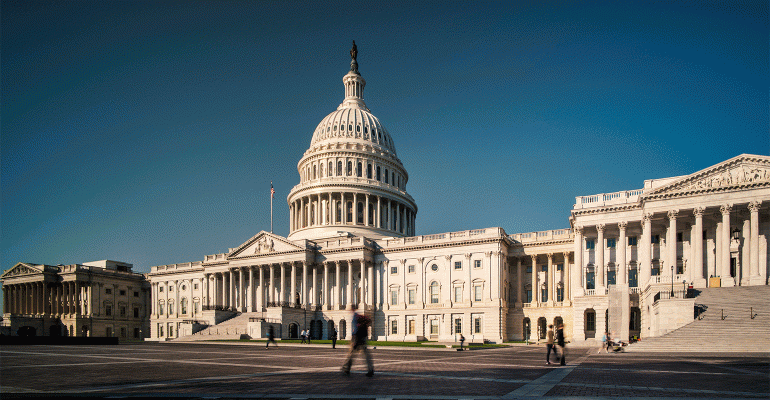Legislation that could extend the Paycheck Protection Program, or PPP, was approved in the House on Thursday, but faces an uncertain future in the Senate.
The House approved by a vote of 417 to 1 the Paycheck Protection Flexibility Act, a bipartisan effort introduced by Reps. Dean Phillips (D-MN) and Chip Roy (R-Texas) that would rewrite some of the rules limiting how businesses can use PPP funds.
The bill, for example, would allow borrowers 24 weeks, rather than the current eight weeks, to spend the funds, giving restaurants more time to get past the transition period of limited-capacity reopenings. For those who were approved for loans the first week they were available in April, that eight-week period is soon coming to a close.
The Flexibility Act would also allow operators to spend up to 40% of PPP loan funding on non-payroll expenses, like paying rent, utilities or protective gear for staff. Currently, the program limits non-payroll spending to less than 25% for those who plan to seek loan forgiveness.
The House bill would also extend the loan’s term limit from the current two years to five years. And it would also extend the deadline for rehiring workers beyond the current June 30 to Dec. 31 for those who would seek loan forgiveness. It would also ensure that PPP borrowers have access to payroll tax deferment.
The House earlier this month passed a larger $3 trillion bill that would also have adjusted the PPP program, but Senate leaders have decline to take that legislation up.
Lawmakers on both sides of the aisle, however, have shown support for the narrower PPP fixes, giving supporters hope that the Flexibility Act could see passage in the Senate.
Sen. Marco Rubio (R-Fla.) has also backed a separate PPP bill that would extend to 16 weeks the period for using the funding. It would also extend to the program to the end of December.
Meanwhile, industry groups hailed House members for their overwhelming bipartisan support for making the PPP program more flexible.
“Our focus will now shift toward achieving similar bipartisan results in the Senate because enacting these PPP changes will help restaurants get the relief they need to get employees back to work and the industry on the path to recovery,” said Sean Kennedy, executive vice president of public affairs for the National Restaurant Association, in a statement.
Similarly, the Independent Restaurant Coalition noted that the White House has indicated support for fixing the PPP program.
“President Trump last week acknowledged that these PPP changes are needed to help independent restaurants put people back to work, and today Republicans and Democrats worked together to put forward a bill that would do just that. It’s now up to the Senate to give independent restaurants and 11 million employees a fighting chance to survive this crisis.”
Sen. Chuck Schumer (D-N.Y.) has reportedly said he plans to push for consideration of the Flexibility Act when the Senate returns from the Memorial Day break on Monday.
Created as part of the Coronavirus Aid, Relief and Economic Security, or CARES, Act, the PPP program has granted 4.4 million loans totaling about $511.2 billion through May 23.
For our most up-to-date coverage, visit the coronavirus homepage.
Contact Lisa Jennings at [email protected]
Follow her on Twitter: @livetodineout





